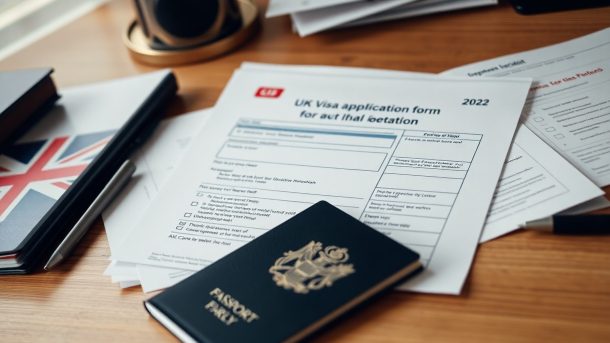EU citizenship once provided you with a set of rights and freedoms throughout the UK, but the landscape has changed significantly since Brexit. As you navigate your status in this new environment, it is imperative to understand the rights you retain or have lost as an EU citizen. This post will guide you through the key aspects of your rights in the post-Brexit UK, including residency, work, and access to services, ensuring you are well-informed about your position. Stay tuned to discover what you need to know about your rights in these uncertain times.
Key Takeaways:
- Residency Rights: EU citizens residing in the UK before the end of the transition period must apply for the EU Settlement Scheme to retain their right to live and work in the UK.
- Family Reunification: EU citizens and their family members may have rights to join relatives in the UK, but they must meet specific criteria set by UK immigration laws.
- Healthcare Access: EU citizens may need to navigate new healthcare entitlements in the UK post-Brexit, as the European Health Insurance Card (EHIC) may not provide the same level of coverage as before.
Overview of EU Citizens’ Rights in the UK
The rights of EU citizens in the UK have undergone significant changes since Brexit. While some rights have been maintained, others have been redefined, impacting their everyday lives. To better understand this transition, you can refer to detailed information on EU Migration to and from the UK.
Residence Rights
Overview of your residence rights within the UK varies depending on whether you applied for the EU Settlement Scheme. If granted settled or pre-settled status, you can continue residing in the UK with specified conditions. It is imperative to ensure that you have applied correctly and understand any potential impacts on your residency.
Work and Employment Rights
Across the UK, employment rights for EU citizens have evolved, primarily focusing on your ability to work and the protections available to you. New legislation has introduced requirements for work permits, which are new for many who might have previously taken employment without such considerations.
Employment opportunities for EU citizens now hinge on visa requirements, which may be determined by the skill level of the job and salary thresholds. You should familiarize yourself with the Skilled Worker visa scheme and note that certain sectors may face shortages, which could offer more flexibility in obtaining employment. Keeping abreast of these changes is important for securing your working rights in the post-Brexit landscape.

Access to Healthcare and Social Services
Clearly, accessing healthcare and social services in post-Brexit UK involves understanding your rights as an EU citizen. While many aspects have changed, you still have options to receive medical care and support. It is vital to familiarize yourself with the eligibility criteria and available programs to ensure that you can make the most of the services that may still be accessible to you.
NHS Eligibility
For EU citizens residing in the UK, your eligibility for NHS services largely depends on your residency status and whether you are a permanent resident or have settled status. Ensure that you provide any necessary documentation to demonstrate your status, as this can determine your access to free or subsidized healthcare.
Social Benefits
At present, accessing social benefits in the UK as an EU citizen can be complicated. Your eligibility often hinges on your immigration status and length of residency, as certain benefits are available only to those with settled or pre-settled status. Be proactive in understanding what you can claim and the criteria you must meet to access these vital services.
Due to the shifting landscape of social benefits in post-Brexit UK, it is imperative to keep up-to-date with current policies affecting you. If you have settled or pre-settled status, you may access specific benefits, such as Universal Credit and housing assistance, but eligibility criteria can vary. You should research your options thoroughly and reach out to local authorities or support groups for assistance in navigating the application processes, ensuring you receive the benefits you are entitled to.

Legal Status and Security of Residency
Keep in mind that your legal status in the UK post-Brexit relies heavily on the provisions outlined in the Withdrawal Agreement. As an EU citizen, if you are a resident in the UK, you must ensure that you have applied for either Settled or Pre-Settled Status under the EU Settlement Scheme to secure your residency rights in the country.
Settled Status
Before applying for Settled Status, you should ensure that you have been living in the UK for at least five continuous years. This status grants you the right to remain in the UK indefinitely, access benefits, healthcare, and other services just like UK citizens. If you have arrived in the UK more recently, you may still qualify for Pre-Settled Status, allowing you to remain until you gain the necessary residency duration.
Challenges and Appeals
Appeals can arise if your application for Settled or Pre-Settled Status is denied. It’s important to understand the reasons for the refusal, as this will form the basis for your appeal. You have the right to request a review of the decision, and by presenting additional evidence or clarifying misunderstandings, you may successfully overturn the decision. It’s advisable to seek legal advice if you find yourself in this situation.
Hence, you should be aware that the appeals process can be complex and time-consuming. While you have the right to challenge decisions regarding your residency status, it’s important to gather all relevant documentation and understand the specific criteria against which your application or appeal will be evaluated. Professional assistance may greatly improve your chances of a successful outcome, ensuring your rights are upheld and your residency is secured.
Family Reunification Rights
Now that the UK has left the EU, your rights regarding family reunification may have changed. It’s important to understand your options as an EU citizen. You can find information about the rights of EU citizens in the United Kingdom after the end of Brexit here. Your ability to remain with family members depends on your current immigration status and specific regulations in place since the transition period ended.
Sponsorship of Family Members
Sponsorship of family members can be a vital aspect of your rights in the UK. If you are a resident, you may be able to sponsor eligible family members for visas, allowing them to join you in the country. Conditions apply, including residency requirements and proof of your ability to support them financially.
Rights of Dependents
One important consideration for your family is the rights of dependents, which may vary based on your immigration status. Dependents typically include spouses, civil partners, and children under 18. Their ability to reside in the UK alongside you depends on your visa type and compliance with the necessary application processes.
Family reunification norms in the UK have evolved, and dependents seeking to join you may need to meet specific criteria. This could involve demonstrating a genuine relationship, financial stability, and adherence to the existing immigration laws. Familiarizing yourself with these requirements will aid your understanding of how to successfully navigate the application process for your loved ones.
Impact of Brexit on EU Citizens’ Rights
Your rights as an EU citizen living in the UK have experienced significant changes following Brexit. While many can still reside and work here, changes in immigration status and access to services have come into play. It’s important to understand how these shifts may impact your daily life and future in the UK.
Transition Period Implications
Any EU citizen who was residing in the UK during the transition period had the opportunity to apply for settled status, safeguarding their rights. However, those who arrived after the deadline could face different requirements under the new immigration system, impacting their ability to live, work, and access public services.
Future Changes and Developments
Against the backdrop of Brexit, the future of EU citizens’ rights in the UK remains uncertain. The UK government has the authority to modify immigration rules, which could pose challenges or offer new opportunities for EU nationals in the future.
Consequently, it is important to stay informed about any potential changes to immigration policies that may affect your status. The UK government could introduce amendments that either tighten or ease regulations for EU citizens, impacting your rights related to residence, employment, and access to public services. Being proactive and informed will help you navigate the evolving landscape of your rights post-Brexit.
Resources and Support for EU Citizens
Unlike the pre-Brexit era, navigating life in the UK as an EU citizen now requires understanding specific rights and options available to you. There are many resources and support systems in place to help you adjust, including legal assistance, community organizations, and online tools tailored to your needs. It’s important to be aware of these resources to ensure that your rights are upheld in this new landscape.
Legal Guidance
By seeking legal guidance, you can gain a clearer understanding of your rights and obligations as an EU citizen in the UK. Various legal aid services offer consultations to help you navigate any regulatory complexities you may encounter, ensuring you remain well-informed and protected.
Community Support Organizations
Along with legal guidance, community support organizations play a vital role in assisting EU citizens. These organizations provide valuable resources, services, and networks to help you feel more integrated and supported in your new environment.
Another important aspect of community support organizations is their ability to foster connections among EU citizens. Many of these groups host events, workshops, and social gatherings, allowing you to meet others who share similar experiences. They also offer language and employment support, helping you bridge gaps in integration and find a sense of belonging in your new community. Engaging with these organizations can greatly enhance your transition and provide you with a network of support.
Conclusion
Ultimately, as an EU citizen in post-Brexit UK, your rights have changed, but certain protections still apply. You may be eligible to apply for settled or pre-settled status under the EU Settlement Scheme, which allows you to reside, work, and access services in the UK. Be aware of the limitations on freedom of movement and other entitlements that may differ from your previous situation. Staying informed about your rights will be imperative to navigate this new landscape effectively, ensuring you maintain your status and access to the benefits available to you.
FAQ
Q: What rights do EU citizens have in the UK post-Brexit?
A: EU citizens in the UK post-Brexit retain certain rights, mainly those stipulated under the Withdrawal Agreement. This includes the right to reside in the UK if they have settled or pre-settled status, the right to work, study, and access public services. However, new permissions may be required for EU citizens and their family members, especially regarding immigration and residency.
Q: How can EU citizens apply for settled or pre-settled status in the UK?
A: EU citizens can apply for settled or pre-settled status through the EU Settlement Scheme. The application process is online and requires proof of identity, residency, and eligibility. Those who have been living in the UK for five years or more can apply for settled status, while those with less than five years can apply for pre-settled status, allowing them time to obtain the necessary residency period.
Q: What happens if an EU citizen did not apply for settled status before the deadline?
A: EU citizens who did not apply for settled or pre-settled status before the deadline may find themselves in a vulnerable position, as they will technically be living in the UK unlawfully. However, there may be options for late applications under certain circumstances, such as if an individual can demonstrate reasonable grounds for missing the deadline. It is advisable to seek legal advice in such cases.
Q: Are EU citizens still allowed to sponsor family members to join them in the UK?
A: Under the new immigration system, EU citizens can sponsor family members to join them in the UK, but the process has become more complex. Family members need to meet specific criteria and may require visas. Close family members, including partners and children, generally have more straightforward pathways to join EU citizens who have settled status, while extended family members may encounter different requirements.
Q: Can EU citizens studying in the UK access financial support and healthcare?
A: EU citizens who have settled or pre-settled status in the UK can access student loans and financial support for higher education, similar to UK residents. Furthermore, they are generally eligible for the National Health Service (NHS), allowing them to receive healthcare services. However, it is vital to check any changes in eligibility criteria or specific conditions that may apply post-Brexit.













Recent Comments